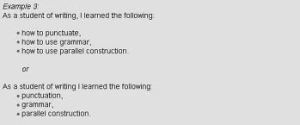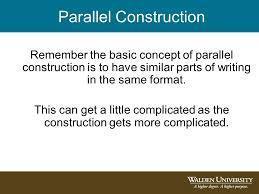Sally Ember's Blog, page 107
July 27, 2014
Conclusions from Smashword’s Survey: How to Sell your Books
Thanks, Nicholas, for doing the “heavy lifting” and summarizing the Smashwords’ Survey results, here. Question: until today, I read many places that it’s after Book 3 in a series that authors can expect to do better/become more “visible.”
Today, you said Book 5 and I want to tear out my hair (I’m halfway done with Book 3 and have done everything else on that survey already and correctly).
Tell me that “5″ was a typo???? Please????
Best to you. Sally
 Originally posted on Nicholas C. Rossis:
Originally posted on Nicholas C. Rossis:
 All my author friends spend sleepless nights agonizing over one question: how can I best promote my books? Well, Smashwords recently attempted to answer that question through a survey examining what works and what doesn’t in terms of ebook sales. You can read the whole survey on the Smashwords blog, but, as always, I’ve made a helpful list of the most important (to me) points. So, here are the takeaways from the survey:
All my author friends spend sleepless nights agonizing over one question: how can I best promote my books? Well, Smashwords recently attempted to answer that question through a survey examining what works and what doesn’t in terms of ebook sales. You can read the whole survey on the Smashwords blog, but, as always, I’ve made a helpful list of the most important (to me) points. So, here are the takeaways from the survey:
A few titles sell really well, and many don’t sell that well. However, a lot of Smashwords authors earn a good income from their books. This agrees with Hugh Howev’s Author Earning surveys.
It’s important to climb in sales ranks, as this leads to geometrically increased sales. This is what some people sometimes call reaching a critical mass of readers.
Readers prefer longer books. A few days ago, a reader gave me 4 stars for The Power of…
View original 519 more words
Filed under: Writing







July 26, 2014
The Corrupter: Now Available on Smashwords!
5 more days for #SmashwordsJulySale with this and both Volumes of #THESPANNERSSERIES also on sale! Vol II is 50% off: https://www.smashwords.com/books/view/424969 Vol I is Permafree: https://www.smashwords.com/books/view/376197 Cruise the catalog and find great bargains through 7/31!
 Originally posted on Richard Evans - Northern Scribe:
Originally posted on Richard Evans - Northern Scribe:
The Corrupter is a tale of one man’s obsession with a machine in the shape of a beautiful young girl. From the moment Oberon O’baron laid eyes on the robot, he was in love. With just a glance the petite artificial girl set his heart aflame, sending him into an obsessive frenzy that leads him down a dangerous path.
Filed under: Writing







July 24, 2014
Feminist Science Fiction
Great article from a new great site, Motherboard.tv Thanks for posting, J!
 Originally posted on J. Giambrone:
Originally posted on J. Giambrone:
Feminist Science Fiction Is the Best Thing Ever
“Feminist science fiction is a key,” writes the critic Marleen S. Barr, “for unlocking the patriarchy’s often hidden agendas.”
Filed under: Writing







A DNF (Did Not Finish) Experience Does NOT Qualify for a “Review”
As a writer and as a reader, I am a genre outsider. I don’t write or read squarely within any genre except Speculative Fiction, but that is so large as to be considered a literary category and not one genre (see previous post, http://sallyember.com/2014/07/10/guest-post-the-politics-of-speculative-science-fiction/, for what belongs within Spec Fic).
Furthermore, I don’t usually like what is published in most of the #SpecFic subgenres. I don’t even like their plots or characters. Same goes for #Romance. I often have to label books Did Not Finish (DNF), although I reserve even that designation for books I read a great deal of before abandoning.
image from http://www.prettyinfiction.com by Jesse Burgoyne
Here are the reasons that I often Did Not Finish (DNF) a book. Books on my DNF list feature:
zombies and other horror characters/plots, especially “damsel in distress”;
dystopian, apocalyptic downers;
space wars, medieval wars, any other wars;
combat/violence masquerading as plot points;
instant, superficial romance (humans with humans or humans with aliens, shapeshifters, vampires or whatever);
gratuitous sex or violence (meaning, does not advance the character development or plot, and appears every so many pages, anyway);
military characters, past/future or pretend;
“instant” solutions, usually involving a main character’s finding a lover, to serious grief or other problems;
sexist, racist, misogynistic, heterosexist/homophobic, classist, ageist and other oppressive depictions of characters, even if they’re “realistic” for the characters or eras
clichès, trite plot twists, 2-D characters, and /or other types of bad writing
too many typos, grammar or other mistakes that reveal the absence of or very poor editing
nothing interesting, so I’M BORED.
As you might imagine, this list includes most speculative fiction and romance books.
You now understand the main reason I almost never do “review swaps.” I so strongly dislike other people’s books/stories, even when they’re relatively well-written, that I can’t even read past the first few pages for most of them. I have tried to read and review them, especially when they are well-written or the author is someone I wish to support for other reasons, but I just can’t appreciate what I don’t like.
Unlike other reviewers who find themselves unable to finish a book because they don’t like it, I don’t post a “review” of an unfinished book unless it’s written by a well-established author whom many others are praising. In those cases, I post my dissenting viewpoint just to round out the PR for that book, knowing my minority, low opinion won’t crush or crash them.
Otherwise, I don’t post my many DNFs with ratings and I do not post “reviews.” I strongly wish other DNF readers would adopt my policy.
It is completely unfair for anyone to give a “professional” opinion (which is what a review purports to be) of a piece of literature the reviewer hasn’t completed. I’ve had some “reviewers” read a few dozen pages of my 300+-page books and then have the audacity to post a ZERO or one-star “review.” What is the justification for that? When they label a sarcastic or dissatisfied DNF response after having read only a few pages a “review,” that infuriates me.
I don’t mind that some readers DNF my books. I understand that some don’t like them. I also encourage readers to comment on any books they want, all they want. As a frequently dissatisfied reader, myself, I empathize with DNF experiences. Sometimes, I explain.
I object strenuously, however, when these DNF readers label their preliminary reactions and comments a “review.” Even more heinous is that some have the gall to rate their DNF books.
In what other profession or situation does a “professional” who has had only a brief experience with the piece become entitled to the right to judge it? Can an Olympic judge watch just a few seconds of the gymnast’s floor exercise routine, then rate it? Do we allow a jury to hear only one witness or just a few words of testimony and give a verdict? When do we ever allow a teacher to give a semester’s grade after briefly meeting the child or giving just one quiz?
image from mackenzian.com
Yes: not all readers finish books or even read most of a book. I am a reader who has a list of titles pages long I have done that with because they did not hold my interest. However, for fairness and professionalism, I strongly request that readers and especially reviewers who DNF not to rate or review those books. Please.
It is fair and helpful, meanwhile, for professional reviewers and avid readers to maintain a DNF list and even to share it. Better would be that we explain a little about our DNF reasons, but that is not expected or required (we’re busy!).
image from mylifeinbookss.wordpress.com
I hereby proclaim: these are fake reviews, due to the readers’ DNF status. DO NOT READ DNF “reviews.” DO NOT BELIEVE WHAT THEY WRITE. DO NOT SUPPORT “REVIEWERS” who postDNF “reviews.”
One bonus: Within a DNF‘s comments are sometimes witty lines. Those I am pleased to re-post, just for fun.
Meanwhile, back in authors’ support land: please don’t ask me to do a review swap. I mostly do not do reviews, anyway. I do not consider myself a “professional” reviewer. I am just an avid reader and an author.
When I do choose to read a book and finish it, I will post a review. I promise.
Mostly, these days, #Iamwriting my books and blog posts.
Best to you all.
Filed under: Blogging and others' content, Opinions, Reviews Tagged: DNF, review, review swaps, reviews, romance, speculative fiction, Writers, writing







July 23, 2014
“Getting Comfortable with #Technology Takes Time,” Meloney Hall’s “Lights, Camera, #HOA” with Sally Ember, Ed.D., from 7/21/14
Thanks so much, +Rayne Dowell, +Michael Daniels, +Sheila Strover and, of course, our hostess with the mostest, +Meloney Hall, for having me on, schooling and supporting me in my first working #Google #HOA (#Hangout On Air)!
Watch this #author have a sort-of #interview while I’m learning how to use the technology, right there.
Laugh (and learn!) on YouTube (both links go to the same place):
https://www.youtube.com/watch?v=y1z17xLtttg
Filed under: Google HOAs, Marketing Tagged: Author Interview, Sally Ember, The Spanners Series, WillowRaven







July 22, 2014
Parallel Construction: What it is, what it isn’t, and how to write better despite hating your 8th-grade English teacher
Parallel Construction (PC from now on) is a type of sentence structure that confounds even “good” writers and many professional editors. Sorry! If you understand PC, then you must have HATED the title of this post!
YES! Points to you if you recognized that this post’s title is NOT written in proper Parallel Construction! I wrote: “…What it is, what it isn’t, and how to write better…”
image from unilifeapps.curtin.edu.au
When we write a string (a series) of phrases or words, the rule of PC is: the members of any string must be in the same form or format.
When they are not in the same form/format, then they must be separated by giving them different wording and punctuation than when they are Parallel.
Here is what is incorrect about that part of the title, according to PC. In the title’s string, I start with “what it is” and then go on to “what it isn’t.” Fine, so far.
The mistake comes in the next phrase. This phrase seems as if it is part of the same string, but it can’t be, due to its differing format: “how to write better.”
If I can’t write what I want to say in the same format as the two or more members of the series that preceded the next phrase or word, but I insist on including that content in that series’ sentence, I must change the structure of the sentence, like this:
“…what it is and what it isn’t, and how to write better…” adding the “and” between the two similar series’ members and a comma after those before the “and” that precedes the odd one out.
Confused? Here is another example of a mistake in Parallel Construction I lifted from a video description on Youtube today: “Daniel Radcliffe is smart, rich, and has a good sense of humor.”
Here we have two members of the series that are one-word adjectives, “smart” and “rich.” To keep that string in its proper, parallel format, the next quality that describes Radcliffe also should be a one-word adjective, but it is not. Not only that, but the errant final phrase starts with a verb and keeps going.
The third member of that contumacious string is an imposter, not being a one-word adjective. This pretender to the above sentence’s string membership has an entire phrase as its quality’s entourage: “has a good sense of humor.” DISALLOWED!
If the author wishes to describe Radcliffe with these three qualities yet write correctly, s/he could write: “Daniel Radcliffe is smart, rich and funny.” See? The three one-word adjectives are in perfect Parallel form. No comma is needed or desirable after “rich” in this version, by the way.
OR, to maintain the exact meaning even better, try this: “Daniel Radcliffe is smart and rich and has a good sense of humor, too.”
Unfortunately, what I see (and hear) repeatedly are strings with two or more members that are properly Parallel while the final member is not. Errors in Parallel Construction are rampant. Fortunately, they are easy to detect. Unfortunately, they are sometimes awkward to correct.
The trick in correcting errors in PC is to avoid making the edited sentence sound phony or stiff while maintaining the precise meaning the author intends. Not so easy to do in many cases, you will find.
Some Tips to Recognizing and Correcting Errors in Parallel Construction:
image from slideplayer.us Thanks to Walden University for both graphics.
Notice sentences that have lists. Check the form/format of each part of the list. A series or string of three or more words or phrases is the only place PC can be used correctly (or incorrectly). Some editors talk about non-Parallel Construction of paragraphs or even chapters, but they are using the term incorrectly. What they mean is this author has problems with consistency in formatting or length of paragraphs, perhaps, or has style similarities that aren’t carried over properly among paragraphs or chapters (these are common problems but are not correctly called non-PC).
When the members of the string are verbs, make sure they are in the same form. For example, verbs in a string that have “ing” as their endings can’t suddenly change form. “She was glad to be eating, reading and walking…” should have no errant infinitives, such as “to take a walk,” sneaking in at the end.
Each member of a string that has phrases should have identical phrasing. That means that when the first two phrases each has three words, so the third and subsequent members should each have three words. Example: “I hate people who talk on the phone, eat at their desks, yell across rooms and pick their noses during lunch breaks” is correct. However, “I hate people who talk on their cell phones, eat whatever smelly food they want at their desks or cubicles, yell at their friends across the room, down the halls, or wherever they are, and pick their noses during lunch breaks” is not. Though presenting funny images vividly, the second sentence is a mess, grammatically.
Make sure the beginning of each bullet point or list is written in the same form/format. When you start a list (numbered or bulleted) with an action verb (“Make sure”), or an adverb (“How”), keep using that.
Also, when you start a list of items in which the first item starts with a capital letter or italics, keep doing that. When each point ends with a period, keep that format as well. The first piece of advice concerns Parallel Construction. The next two tips concern parallel formatting.
I hope this brief lesson in Parallel Construction improves your understanding, your speaking and your writing.
If it does not, don’t blame, call or come to find me and kill me.
Correct my (intentional) errors in the comments section, below. That constitutes your final exam.
Thanks for playing Grammar with me!
Filed under: Life lessons, Writing Tagged: Grammar, Parallel Construction, sentences, writing







July 21, 2014
On Doing What’s Normal When Things are Turning to Shit
This explains beautifully why I make soup every week and eat it every day. Really. Thanks. FYI the rest of you: Coping by going on with life is not always a sign of denial. All pain, grief and fear don’t have to be displayed all the time to be recognized and present for the coping person.
 Originally posted on Red's Wrap:
Originally posted on Red's Wrap:
Normal has an extraordinary glow of comfort when things are turning to shit. Normal is your mother’s hand on your cheek. Normal is the blanket of your youth pulled up to your neck, your head deep in billowy pillows that only this morning seemed due for replacement. Normal is precious, rich, unique, a reward for suffering long or short.
When something terrible happens, we want normal. It might be just one fine thing that is normal while all around cascades terrible, freakish, unbelievable things but if this one normal thing can occur, then we can settle down, rest, and stop careening around, a BB in a bare room.
This morning’s paper detailed the criticism aimed at President Obama for going about his normal schedule in light of the plane shot down over Ukraine and the ever-ratcheted up conflict between Israel and Palestine. He should be at the White House, act like a Commander in Chief…
View original 381 more words
Filed under: Writing







July 19, 2014
Simple Tips to Manage Fatigue with Brain Injury, Memory Problems, and Chronic Illness to Self Rehabilitate
A lot useful tips her for you or a loved one/colleague recovering from/living with a #TBI.
 Originally posted on braininjuryselfrehabilitation:
Originally posted on braininjuryselfrehabilitation:
 How can you manage mental and physical fatigue in your daily life? The normal fatigue you feel from brain injury is not like simple feelings of tiredness. It’s far from this. It exhausts all your physical and mental energy and leaves one in a brain fog where you can not think at all or physically accomplish anything. Your limbs feel so weak you just cannot be involved in doing anything until you get rest. Sleep is the only thing that helps you feel better.
How can you manage mental and physical fatigue in your daily life? The normal fatigue you feel from brain injury is not like simple feelings of tiredness. It’s far from this. It exhausts all your physical and mental energy and leaves one in a brain fog where you can not think at all or physically accomplish anything. Your limbs feel so weak you just cannot be involved in doing anything until you get rest. Sleep is the only thing that helps you feel better.
View original 1,854 more words
Filed under: Writing







July 18, 2014
“Criteria for Selecting Speculative Fiction for Younger Readers: What to Discuss and Why”
Thanks, Susan Day, for inviting me to be a Guest Blogger on your site, Down Under!
Here is a bit of the post, to whet your appetite…
Criteria for Selecting Speculative Fiction for Younger Readers:
What to Discuss and Why
by Sally Ember, Ed.D.
“Once upon a time…” is the start of many a tale, especially for a younger reader/listener. Add: “in a land far, far away” or “in another time,” and your story falls into the genre of Speculative Fiction, which includes Fantasy and Science Fiction. But, as a life-long feminist (since aged 3; really), I have serious and ongoing problems with many children’s books and movies. Here are some of my issues, topics and criteria for selecting quality children’s literature, particularly in the Speculative Fiction genre.
Confession: I was so anti-fairy- and folk-tales that I returned gifts my well-meaning relatives sent to my then-toddler, 1980-83, because the depictions in the stories were so sexist, racist, and classist I couldn’t restate them fast enough as I read aloud to make the story worth reading. Sure, I could change gender pronouns (almost always moving from masculine to feminine, just to even the score) as I referred to characters in illustrations of impossible-to-classify beings, but when drawings of tiny-waisted, pasty-white mermaids, princesses and downtrodden, victimized, humanoid females were sprinkled throughout a story, it was time to throw the book out…..MORE on Susan’s site!
Here is the link. Please visit, comment, follow, share!
http://www.susandayauthor.com/home/say-hello-to-sally-ember-my-guest-author-for-today
Filed under: Writing Tagged: choosing books, fantasy, parents, sci-fi, speculative fiction, younger readers







July 17, 2014
Comfortable hammock designed to be attached underneath the desk
Great idea! Want!
 Originally posted on jumiss:
Originally posted on jumiss:
Feet hammock designed to be attached underneath the desk
allows you to rest your feet while you work.
Innovative product created for students and people who work in the office.
Fuut hammock.
Easy to install.
Available in various colors.
Filed under: Writing


















